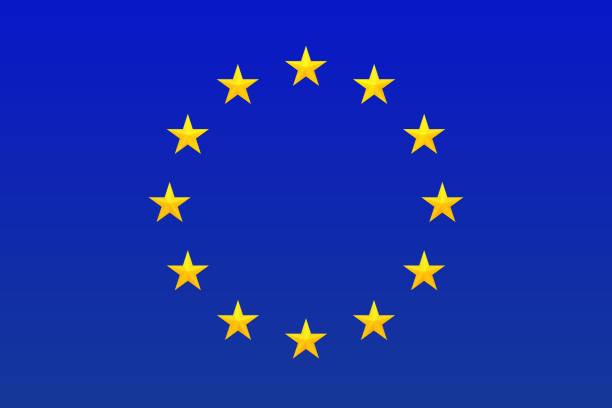Photo caption: EU logo
The European Union and the Federal Government of Nigeria have reaffirmed their commitment to combating transnational organised crime through enhanced judicial collaboration.
The European Union Agency for Criminal Justice Cooperation and the Solicitor-General of the Federation and Permanent Secretary of the Federal Ministry of Justice, Mrs Beatrice Jedy-Agba, stated this on Tuesday in Abuja during a high-level meeting.
Speaking at the event, the Vice-President of Eurojust, Mr José de la Mata Amaya, noted that the meeting was a follow-up to the working arrangements signed between the EU and Nigeria in 2023.
Amaya emphasised that crime knows no borders, adding that the only way countries can succeed in criminal investigations and bring offenders to justice is through collaboration.
“Nigeria needs support and assistance in its cases with EU member states, and indeed, the member states of the European Union also need to strengthen and enhance their cooperation with Nigerian authorities,” he said.
The Vice-President explained that, as part of efforts to realise the cooperation goals, the EU and Nigeria signed a working arrangement. This strategic document lays the foundation for reinforced collaboration.
“Maybe in the future, it will allow us to sign an international agreement with the European Union and the government of Nigeria. For now, we aim to get to know each other better, define best practices to enhance this cooperation and identify challenges or issues that may arise in the member states where we assist Nigerian authorities and in Nigeria where they assist member states.
“The main aim of this endeavour is to improve the number of cases we handle together. This means providing greater assistance to judges and prosecutors in the member states and in Nigeria for their cross-border investigations.
“We have concluded that, while one can achieve something alone, going farther requires teamwork. That is the goal of this working arrangement—to work as a team, respecting all international conventions, both multilateral and bilateral, that govern international legal cooperation, and uphold the guarantees and rights of individuals under investigation. Together as colleagues, we will achieve our shared goal of delivering criminal justice,” he added.
Meanwhile, the EU Ambassador to Nigeria and ECOWAS, Ambassador Gautier Mignot, described the meeting as a strong expression of the joint commitment from Nigeria on the one hand and the UN agencies on the other, to combat crime—particularly transnational organized crime—in a more coordinated and efficient manner.
He expressed gratitude to the United Nations Office on Drugs and Crime, which he noted has played a crucial role in initiating and facilitating the implementation of this cooperation.
On her part, Mrs Beatrice Jedy-Agba stated that the meeting was a follow-up to the working arrangements signed between the EU and Nigeria in 2023.
“This arrangement is primarily aimed at strengthening our joint efforts against transnational organised crimes, with particular focus on enhancing seamless judicial cooperation across international borders in the interest of international criminal justice,” she said.
She noted that judicial cooperation is invaluable in resolving cases that might otherwise fail due to jurisdictional challenges or insufficient grounds for advancing requests.
Jedy-Agba explained that the collaboration is significant because the world is now a global village adding that the working arrangements aim to facilitate cooperation in international criminal justice, ensuring that criminals cannot evade justice by seeking refuge in other countries.
She further highlighted the role of Eurojust in supporting Nigeria’s efforts to extradite suspects, exchange information for investigations, and enforce foreign judgments. “There is much to gain from this collaboration in our commitment to eradicating crime globally,” she said.
She also disclosed that in the coming days, the EU and Nigeria would open dialogues to better understand each other’s systems, identify challenges, and explore areas for deeper and more effective collaboration.
“We hope this will broaden our collective vision and illuminate pathways for reinforced cooperation in international criminal justice matters between Nigeria and the European Union.
“We also hope to achieve our goal of practically implementing the working arrangement, ensuring it operates smoothly and efficiently to effectively address criminal activities between Nigeria and Europe, among others,” she added.
She listed some of the transnational organised crimes as human trafficking, drug trafficking, economic and financial crimes, and money laundering, among others.
She emphasized that the support Nigeria is getting from Eurojust is a much-needed one. “We need support and assistance from countries all over the world, and this is just one of many partnerships and endeavours to ensure we are best equipped to tackle crimes of a transnational nature,” She said.



